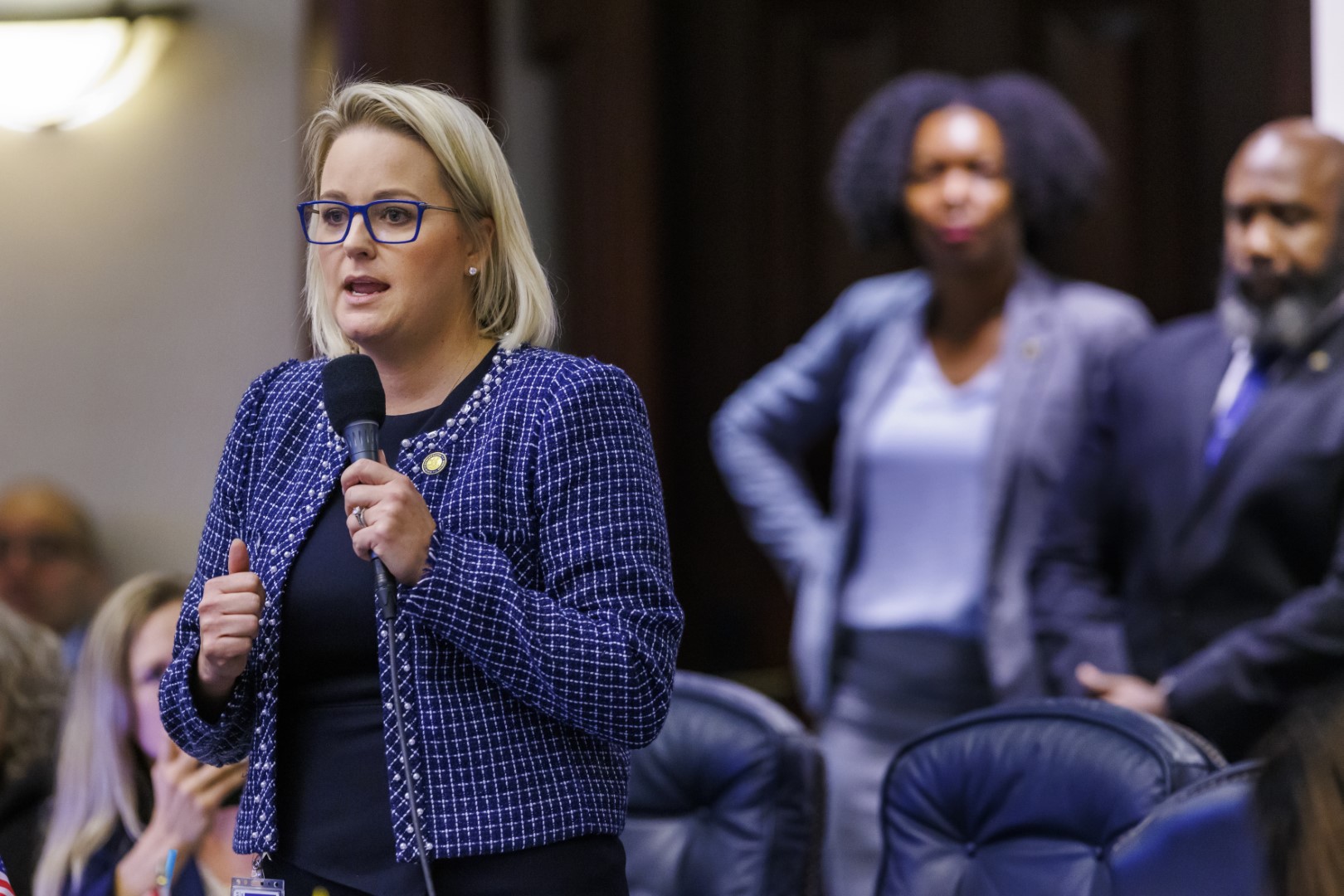Thoroughbred horse breeding is in decline in Florida.
That much was already known, but new data shows the problem worsening, and it raises new questions about legislation moving through the Legislature that would decouple live racing at Florida tracks from slot machine and card room operations.
Namely, if horse racing is so prominent to Florida’s economy, why do races need to be tethered to other wagering activities?
Senate Democratic Leader Jason Pizzo laid out the dilemma perfectly during debate on the decoupling measure (SB 408) in a recent committee hearing on the issue. He asked for clarification about claims “that business is going great,” specifically whether the Jockey Club, which has released troubling data for the horse breeding industry in Florida, is a reputable publication.
“Certainly it is,” responded Tod Wojciechowski, Director of Sales for the Ocala Breeders’ Sales Company and an opponent of the bill.
“Mares bred of Florida Stallions have drastically declined 60% over the last decade,” Pizzo noted. “A raw number standing alone at 3,057 in 2014 down to 1,316 in 2024. Florida’s foal crop has decreased 51% over the last decade, and in 2014 the foal crop was at 2,214, and at the end of 2023, only 1,089.’ Is Jockey Club wrong on those numbers?”
“No, those stats are accurate,” Wojciechowski answered.
And the declines are ongoing. From 2022 to 2023, the share of the North American foal crop fell from 6.4% to 6%, and the number of Florida registered foals dropped by 7.3%. The number of Florida-bred stallions dropped from 72 in 2023 to just 60 in 2024, a nearly 17% reduction. That’s after the number of Florida-bred stallions dropped by a staggering 76% from 2004, when 259 were bred in the state.
Auction results for Florida-bred thoroughbreds is also in decline, with 434 weanlings sold in 2004, but just 10 in 2024. And the average price paid for the weanlings dropped nearly 24% over that period.
So too are racing performance and participation trends on the decline, with 10,331 Florida-bred starters in 2004 and just 3,273 in 2024.
Opponents to decoupling legislation, including veterinarians, breeders and trainers, argue it would devastate the breeding and horse racing industry. But given the ongoing decline that is already in place, it might be more accurate to argue that the decoupling would devastate the subsidies that are keeping the industry afloat amid the devastation that has already occurred.
“The statistics in every category is alarming,” said Republican Rep. Adam Anderson, who is sponsoring the House version of the bill (HB 105).
“As I have been discussing throughout committee weeks and Session, there is a staggering decline in our Florida-bred thoroughbred industry. Considering the amount of funds the breeders receive in state and private subsidies, it is clear that something has to change. My bill seeks to do just that and, without question, is needed more now than ever.”
Last year, the Governor signed legislation establishing permanent yearly distributions of $27.5 million “to promote breeding and racing horses.”
“That’s not sustainable,” Pizzo said during a committee hearing on the Senate bill.
Both measures would allow thoroughbred horse racing tracks to maintain licenses for slot machines and card rooms without requiring them to also host live racing.
In response to concerns from the breeding and racing industry, Sen. Danny Burgess, the bill sponsor, offered a strike-all amendment providing concessions to the thoroughbred horse racing industry and affiliated partners, which was adopted. The House also adopted a committee substitute to its bill offering a similar compromise.
It adds language confirming that a track cannot stop racing unless they provide a three-year notice to the thoroughbred industry. It further states that such notice cannot be given until 2027. The revision is meant to ensure the state’s two existing thoroughbred tracks, Tampa Bay Downs and Gulfstream Park, continue racing into the future.
The Senate amendment that was adopted provides an even longer window for thoroughbred racing, with at least seven years before decoupling can happen.
But time is running out for the measure. The Senate bill is still awaiting a hearing in the Appropriations Committee on Agriculture, Environment, and General Government, which is currently scheduled for Tuesday. The House version is further along, awaiting activity on the House floor. But it’s been waiting since late March.
With time ticking on the 2025 Legislative Session, which is expected to end May 2, there is only one thing that is clear: The thoroughbred industry will continue to push back on decoupling in an industry they describe as vital to Florida’s economy and culture.
They may well win the battle this year. But that win, based on data an industry insider himself has confirmed as accurate, would seem to support a status quo on an industry in decline, while offering few solutions other than continued subsidies.
Post Views: 0


 Entertainment8 years ago
Entertainment8 years ago
 Politics8 years ago
Politics8 years ago
 Entertainment8 years ago
Entertainment8 years ago
 Entertainment8 years ago
Entertainment8 years ago
 Tech8 years ago
Tech8 years ago
 Tech8 years ago
Tech8 years ago
 Tech8 years ago
Tech8 years ago
 Politics8 years ago
Politics8 years ago










